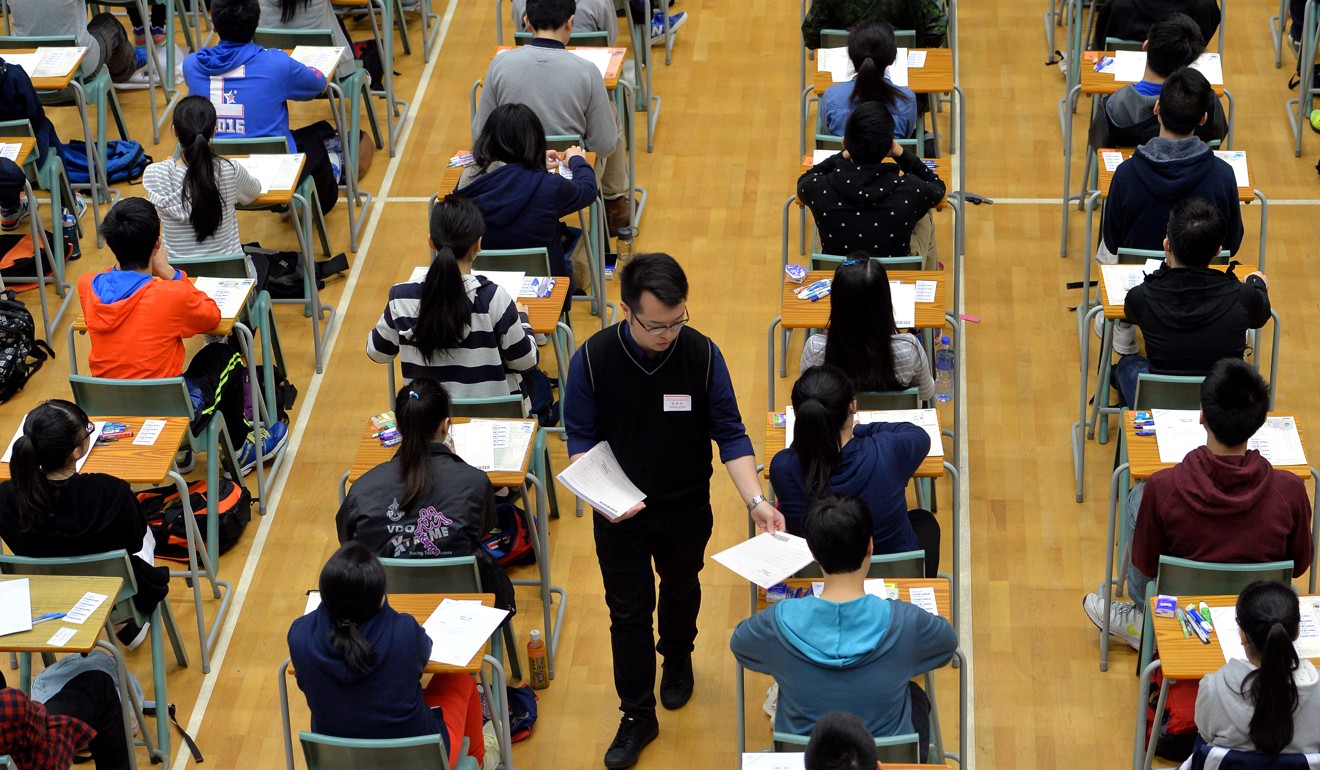
Why are Hong Kong teachers so concerned about Basic Law education?
Reporter Peace Chiu sets out the reasons for the latest move, the criticism and the government’s response
1) Why Basic Law education?
According to the new secondary education guide prepared by the Curriculum Development Council, the Basic Law – Hong Kong’s mini-constitution – is closely related to students’ daily life in Hong Kong, and education on the topic enables students to understand the document’s importance, the principle of “one country, two systems” and how it relates to the sustainability of Hong Kong’s social system and its way of life in the coming decades.
The guide also states that Basic Law education helps to enhance students’ thinking skills, nurture positive values and attitudes and reinforce the cultivation of values including the rule of law, justice, national identity, democracy, freedom, human rights, equality and rationality.

2) What has changed with the new curriculum guide?
Basic Law education was introduced in 2002 through different curriculums such as the general studies subject in primary schools, life and society and Chinese history at the junior secondary level and liberal studies at the senior secondary level.
The new guideline specifies for the first time that a school should provide at least 39 hours of Basic Law education, of which 24 hours would be in Chinese history and 15 hours in life and society subjects. For schools that do not offer life and society lessons at junior secondary level or in cases where Basic Law-related modules are not taught in life and society, a 15-hour independent “Constitution and the Basic Law” module will be developed for schools’ adoption in mid-2017. The total lesson hours for Basic Law education will go up to 51 hours if schools offer subjects such as history and geography, which can dedicate 10 hours and two hours respectively to Basic Law education.
A self-evaluation form is provided for schools to track the number of hours spent on Basic Law education and whether the bureau’s teaching materials are used.
3) Who is behind the changes?
The new guide was prepared by the Curriculum Development Council, which sought advice from the Basic Law Promotion Steering Committee, which has a working group on teachers and students. The working group reviews strategies for promoting the Basic Law among teachers and students and draws up action plans to promote the mini-constitution among the two groups.

4) Why is the issue contentious?
Fung Wai-wah, president of the Professional Teachers’ Union, questioned why a large part of the education sector was not consulted on the latest plan before implementation, believing a political agenda was involved.
Education lawmaker Ip Kin-yuen also said the lengthy time set aside for Basic Law studies – such as 24 out of 100 hours for Chinese history lessons at the junior secondary level – could affect curriculum balance.
Ip slammed the video as misleading. He said it failed to highlight the “one country, two systems” principle and presented the chief executive as someone who was appointed, not elected.
But the Education Bureau said the analogy was intended as a way to communicate tostudents of a certain age, taking into account their daily experience. The bureau also said Basic Law elements in the new curriculum are not new, and they are intended to facilitate schools in being more systematic in presenting the law.
5) So do schools get any say in how they teach the Basic Law?
The bureau said it had always allowed schools flexibility in terms of curriculum planning and had never stipulated that schools could only use a particular type of teaching material.
But Fung was worried about how strictly schools would have to follow the new requirements. He said the bureau was sending a clear and strong message on what it expected from schools.

